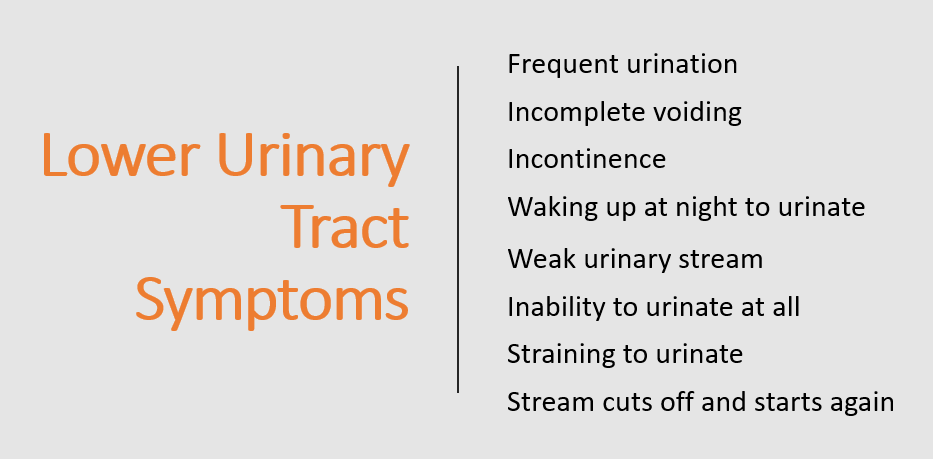
BPH, or benign prostatic hyperplasia, is an enlarged prostate gland not associated with cancer that causes lower urinary tract symptoms. Every male has a prostate, but it grows on its own to the point of causing a problem for about half of men over 50 and even more with increasing age.
As pictured above, the prostate is a small but important gland that surrounds the urethra. This seems like an inconvenient location, but since the prostate makes most of the fluid in semen it is important for it to be next to the urethra for proper sexual function. As the prostate gets larger it can block off the urethra as it exits the bladder, causing the common lower urinary tract symptoms listed below.
It is not well known why some men are spared this problem, but it seems to be more common among men who are overweight, rarely exercise, have heart disease or diabetes, or whose father or brothers also have BPH.
BPH is managed by primary care physicians and urologists in a joint effort. If you are diagnosed with BPH and the initial steps of weight loss, stopping medications that make it worse, decreasing evening fluid intake, and limiting alcohol and caffeine intake have not worked adequately you can expect to be started on one or two pills. If these are unsuccessful then it will likely be time to speak with a urologist about having a procedure to open up the prostate and get you back to living your life as you would like.
If you are a male over 40 experiencing the symptoms described above, keep in mind that BPH is common enough that it might be what you are dealing with. Perhaps men’s health month is just the right time to make an appointment to talk about your symptoms and get on the path to relief.
Information provided by:
Philip Pippin, MD
Assistant Professor of Family Medicine
University of Texas Health Science Center at Tyler
References:
- Pearson, R. Williams, P. Common Questions About the Diagnosis and Management of Benign Prostatic Hyperplasia. Am Fam Physician. 2014 Dec 1;90(11):769-774.
- American Academy of Family Physicians. Benign Prostatic Hyperplasia. 2017 Jul 19. https://familydoctor.org/condition/benign-prostatic-hyperplasia-bph/


